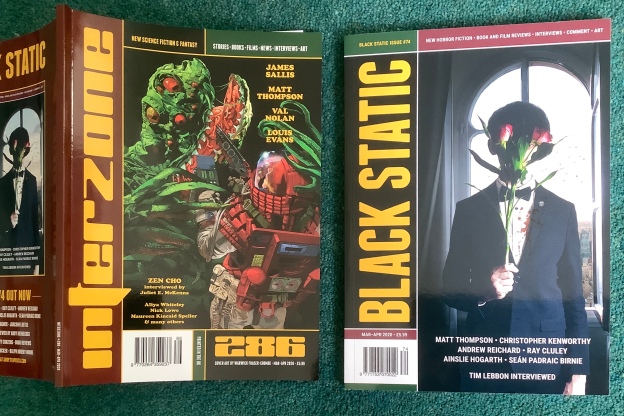Black Static #74

TTA PRESS Mar-Apr 2020
My previous reviews of this publisher: https://dflewisreviews.wordpress.com/tta-press-interzone-black-static/
Stories by Matt Thompson, Christopher Kenworthy, Andrew Reichard, Ray Cluley, Ainslie Hogarth, Seán Padraic Birnie, Val Nolan, Louis Evans, James Sallis.
Covfefe permitting, I shall review these stories in the comment stream below…
BLACK STATIC
MEMORIES OF THE OCCUPATION by Matt Thompson
“Forgetting would be the same as if things didn’t happen.”
“And when he spoke, his voice made me feel like I was choking on feathers and dust,…”
And so, from the Cully King to the Cluley one…
— ‘Viruses that Infect Parasites that Infect Us: The Matryoshka Dolls of Human Pathogens’ (from HERE.)
Quoted in my very recent review of the Collected Stories of Katherine Mansfield here.